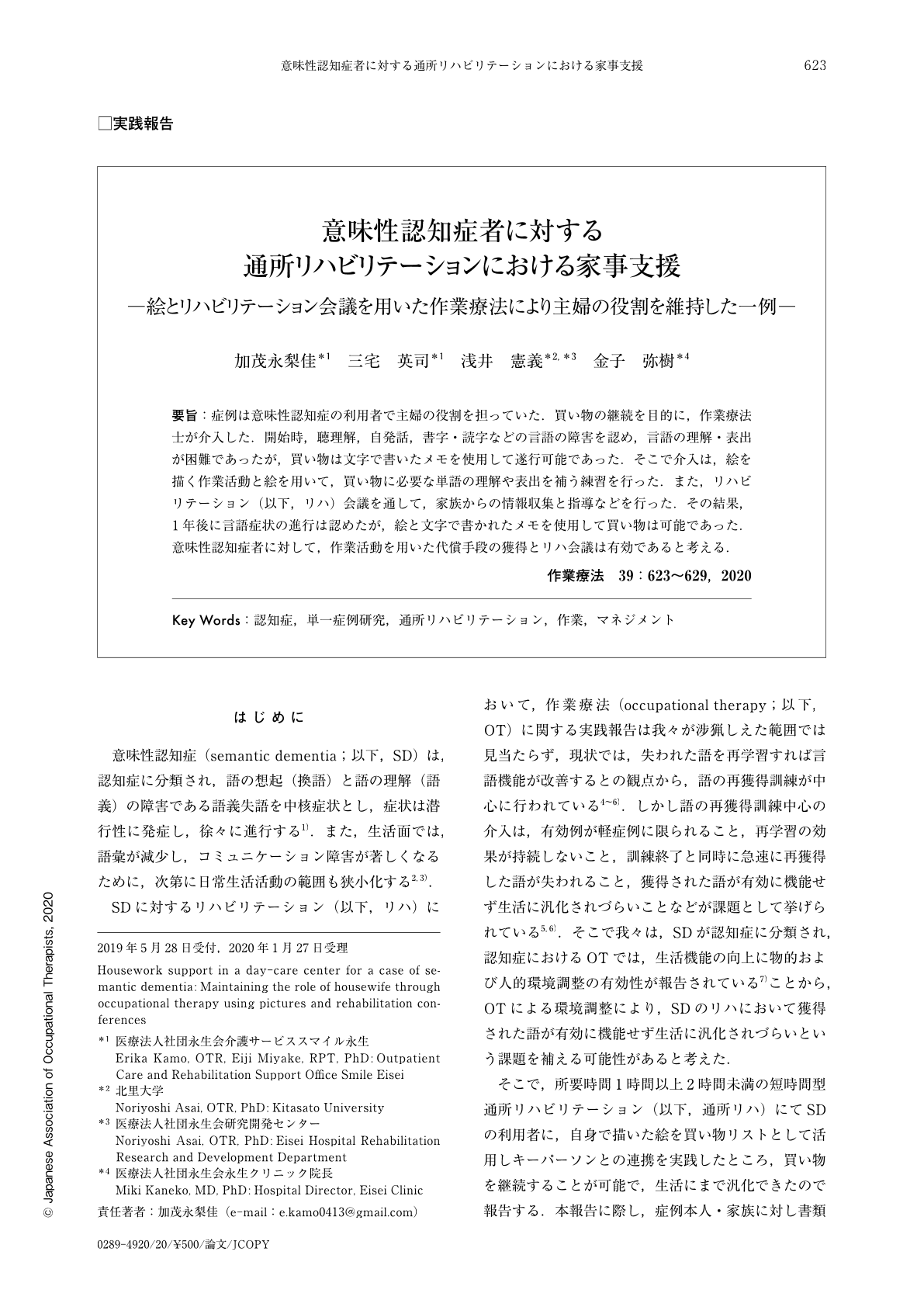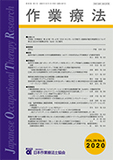Japanese
English
- 販売していません
- Abstract 文献概要
- 1ページ目 Look Inside
- 参考文献 Reference
要旨:症例は意味性認知症の利用者で主婦の役割を担っていた.買い物の継続を目的に,作業療法士が介入した.開始時,聴理解,自発話,書字・読字などの言語の障害を認め,言語の理解・表出が困難であったが,買い物は文字で書いたメモを使用して遂行可能であった.そこで介入は,絵を描く作業活動と絵を用いて,買い物に必要な単語の理解や表出を補う練習を行った.また,リハビリテーション(以下,リハ)会議を通して,家族からの情報収集と指導などを行った.その結果,1年後に言語症状の進行は認めたが,絵と文字で書かれたメモを使用して買い物は可能であった.意味性認知症者に対して,作業活動を用いた代償手段の獲得とリハ会議は有効であると考える.
A housewife suffering from semantic dementia received occupational therapy to offer shopping support. When the patient started to use the day-care center, she had difficulty understanding and expressing language because of dysfunctional listening comprehension, spontaneous speech, writing, and reading. However, she could go shopping with a shopping list, and occupational therapy consisted of drawing pictures and practicing understanding and expressing words needed for shopping with pictures that she drew. We also gathered information from her family and taught them how to cope with the situation. As a result, one year after the initial assessment, language symptoms worsened. Nevertheless, she could continue shopping with a shopping list and pictures. Finding compensatory strategies and holding rehabilitation conferences may have a positive effect on cases of semantic dementia.

Copyright © 2020, Japanese Association of Occupational Therapists. All rights reserved.


